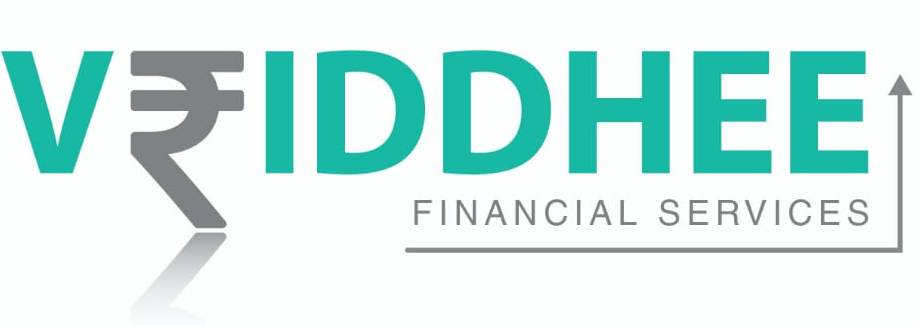
This list is over & above compulsory savings like PF/PPF or Company Medical Insurance etc. In other words, one should put money in the above 5 products from their take home salary.
Most of us graduate by the age of 20/21 and do further studies till the age of 25/26, some others a little more. But by and large retirement age remains around 58 years for working class and a little more for professionals. Effectively this translates to about 35/40 years of working career (including job losses).
The journey from working to retirement age has many a milestones to cross, marriage of self, buying of house/vehicle, children’s education and their marriage etc. Meeting expenses of all these plus saving enough for life post retirement cannot be possible by accumulating money just in savings account or Fixed Deposits.

FIXED DEPOSITS – One is introduced to the idea of Fixed Deposit through savings account from a very young age. In the early days, parents make a FD for their children to inculcate the habit of savings. This holds true even when we grow up and start earning. Money lying in savings account which would be required maybe after 12 or 24 months should be immediately converted into FD. FD of Housing Finance Cos or Corporates fetch better rate of interest but they come with a lock in of 3 months plus the minimum tenure is not less than 12 or 15 months. So if one requires money say within 90 days he would be better off with a Bank FD.
THUMB RULE NO.1 – MONEY LYING IN SAVINGS ACCOUNT REQUIRED AFTER 12/24 MONTHS SHOULD BE CONVERTED INTO FDs.

LIFE INSURANCE POLICIES – One needs to guard against uncertainties especially life. We human beings live on borrowed time. We don’t know how much time we have and on top of it we engage ourselves into many financial commitments. Precisely for this reason, one needs to have Life Insurance Policies.
Different advisors advice different policies, however the common theme definitely is covering life for a huge amount at low premium. Here a Term Plan fits well, irrespective of whether one has a loan on head or not. However there are other policies as well which serves different purposes. For e.g. money back policy (considered expensive) helps you with periodic returns (many claim, it’s your own money returned back) forcing you into saving through premium payments. Most of us who are in private sector and do not enjoy pension should additionally have a Pension Plan in the kitty. This plan helps you during your retirement with periodic returns to take care of your needs and indulge & pamper your grandchildren.
THUMB RULE NO.2 – COVER YOUR LIFE WITH A TERM PLAN WITH A HUGE AMOUNT AND A PENSION PLAN FOR YOUR RETIREMENT

MEDICLAIM POLICY – In today’s times this cannot be ignored. It is oft repeated and does hold true “Health is Wealth”. Therefore, while one cannot avoid falling ill, the expenses associated for treatment can definitely be reduced with an appropriate Mediclaim Policy. We have heard from many, that people have lost all their savings in treatment of their loved ones just because there was no Mediclaim Policy. While the government has introduced scheme like PM Jan Arogya Yojana (PMJAY), the applicability of the same is based on criteria’s like SECC (Socio Economic Caste Census) database for people living in rural areas and occupation criteria for those living in urban areas. Again the amount is restricted to Rs.5/- lakh on a floater basis for the entire family. So if one does not get covered under any of the above rural/urban criteria of the PMJAY it is imperative to have a Mediclaim Policy. More the coverage better it would be. It is best to take it when you are young so that the mandatory period of 2 year exclusion for some of the diseases gets over when you are still healthy. Also even if one is covered by his/her company it would be prudent to have one on own as this would provide coverage during change or loss of jobs.
THUMB RULE NO.3 – MEDICLAIM POLICY FROM ANY INSURANCE COMPANY COVERING ALL THE FAMILY MEMBERS IS A MUST. THE IDEA SHOULD BE TO GET MEDICAL TREATMENT AT NO COST (IF CASHLESS) OR REIMBURSABLE WHEN PAID.

MUTUAL FUND – This financial product has gained momentum in last about 10/12 years. The need of this arose when returns from Traditional products like Interest on savings account or Interest on FD or returns from LIC Policies were found wanting due to inflation eating into these returns. Also people realised that while inflation cannot be controlled, they can definitely take part in incremental earnings which hitherto was given by investing in Stock Market. However for many it is still not their cup of tea because of high risk involved. In good old days, investing in Stock Market was considered akin to gambling. Thanks to education, people are now aware how the Stock Market functions. The risk factor has also come down drastically, again thanks to SEBI the market regulator. Even with all this, there is still a risk involved in investing directly in stock market. This is where Mutual Fund companies bridge the gap. The risk of participating in Stock Market is further reduced if one
takes the Mutual Fund route of investing. Through Mutual Funds the risk gets spread over no. of securities and hence it is safer than investing directly into shares of one or two companies. Unlike direct equity investing where a large amount is required to begin with, in Mutual Fund you can start with as low as Rs.100-Rs.500/- per month.
THUMB RULE NO.4 – INVESTING IN MUTUAL FUND SHOULD BE A PART OF ANY FINANCIAL PLANNING, AS THIS HAS THE CAPACITY OF BEATING INFLATION + HELPS BUILD A CORPUS FOR ANY MAJOR GOALS.

DIRECT EQUITY – One cannot ignore companies like Hindustan Unilever or Ultratech Cement or D’Mart or banks like HDFC or ICICI or SBI. Everyone more or less would have been touched by one of these companies, by the products or services they give. How about owning a part in these zompanies? Yes, by buying their Shares one can become part holder of these companies. While Mutual Fund reduces the risk of investing in bad companies (due to lack of research on an individual’s part) direct equity investing for a beginner should be in companies of great repute. The direct benefit of investing in such companies is twofold – Good Dividends & Capital Appreciation. Earlier shares had to be purchased in lots prescribed by the Stock Exchanges, however these days it is possible to buy shares in ones and twos.
THUMB RULE NO.5 – DIRECT EQUITY INVESTING TO SUPPLEMENT INVESTING IN MUTUAL FUND AND NOT REPLACE IT.
In all these, there would be some voice heard about investing in Gold & Real Estate. It would be good to have these, but having more in these at the cost of other would be skewing the balance. Gold & Real Estate are very illiquid assets. A very huge amount gets locked in when investing in them and at the time of selling, it takes time and a possible loss, like making charges being deducted in case of jewellery. More than one house property is also not a wise decision as maintaining them involves cost.
If you want to plan your finances, keep the above THUMB RULES in mind and do get in touch with VRIDDHEE FINANCIAL SERVICES to help you plan the same.
Phone: 9320113432, 9870989940
E-mail: info@vriddhee.com
Website: vriddhee.com
© Copyright 2019 Vriddhee Financial Services. All Rights Reserved.
